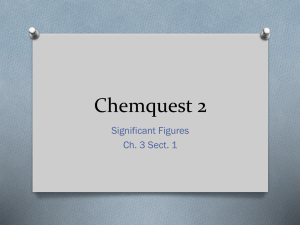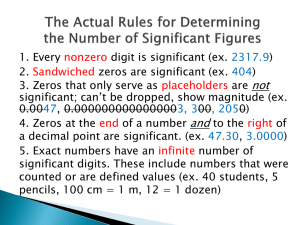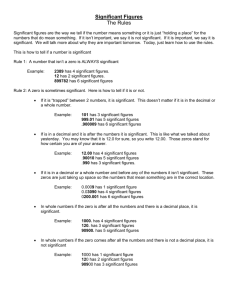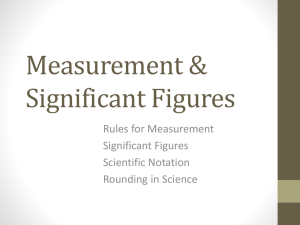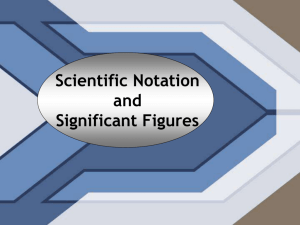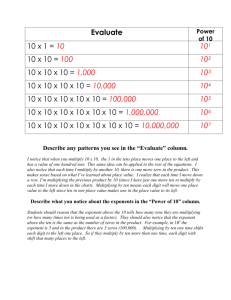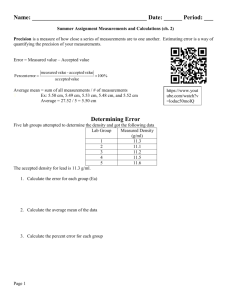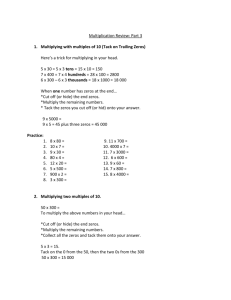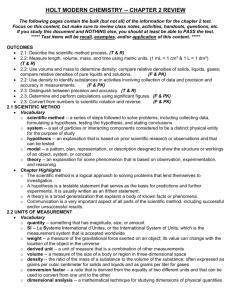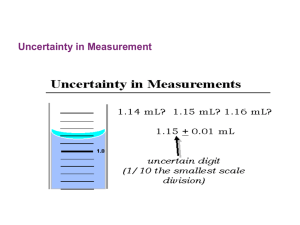Scientific Notation
advertisement
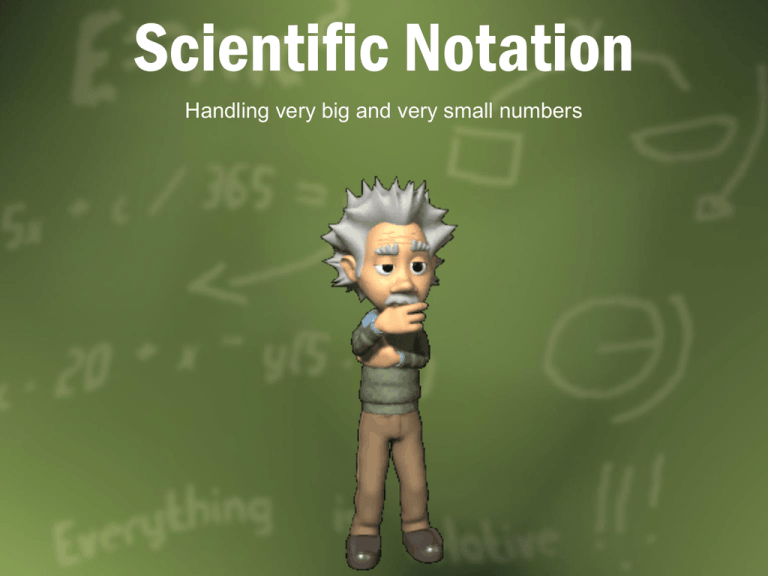
Scientific Notation Handling very big and very small numbers Why we need it Scientific notation is just a way of writing very large or very small numbers without having to use a bazillion zeros. The Powers of 10 NOTICE Multiplying by a power of 10 puts zero(s) on the end of the number 2 x 10 = 20 Multiplying by 100 (102) puts on 2 zeros 2 x 100 = 200 Multiplying by 1000 (103) puts on 3 zeros 2 x 1000 = 2000 etc. How can we use this? Let’s use this feature of multiplying by powers of 10 to write 2 billion without a bunch of zeros. 2,000,000,000 To get that we must have multiplied 2 x 1,000,000,000 or 2 x 109 Rolling the Decimal Or you can think of it as “rolling the decimal” 2. x 10 = 2.0. rolls 1 place Multiplying by 100 (102) puts on 2 zeros 2. x 100 = 2.00. rolls 2 places Multiplying by 1000 (103) puts on 3 zeros 2. x 1000 = 2.000. rolls 3 places etc. Let’s Make a Rule! If we have a BIG number like 2,300,000 let’s write the non-zero part as a decimal with just one digit to the left of the point 2.3 and account for all the other places as a power of 10 Let’s Make a Rule! To get the decimal from where it started 2,300,000. To where it is now, between the 2 and 3 2.300,000. it had to move 6 places to the left. 2.3 x 106 Let’s Go the Other Way! What if we start with a very small number and have to roll the decimal the other way? To indicate that we started with a small number, we’ll use a negative exponent on the 10. Let’s Go the Other Way! Let’s write .0000789 in scientific notation .0000789 Roll that decimal! .00007.89 It moved 5 places to the right. 7.89 x 10-5 Right or Left? I can never keep straight which way to go! An Easy Way to Remember! Put one digit to the left of the point. If it’s a BIG number, the exponent is + If it’s a little number, the exponent is - 2,340,000,000 = 2.34 x 109 .0000000234 = 2.34 x 10-8
